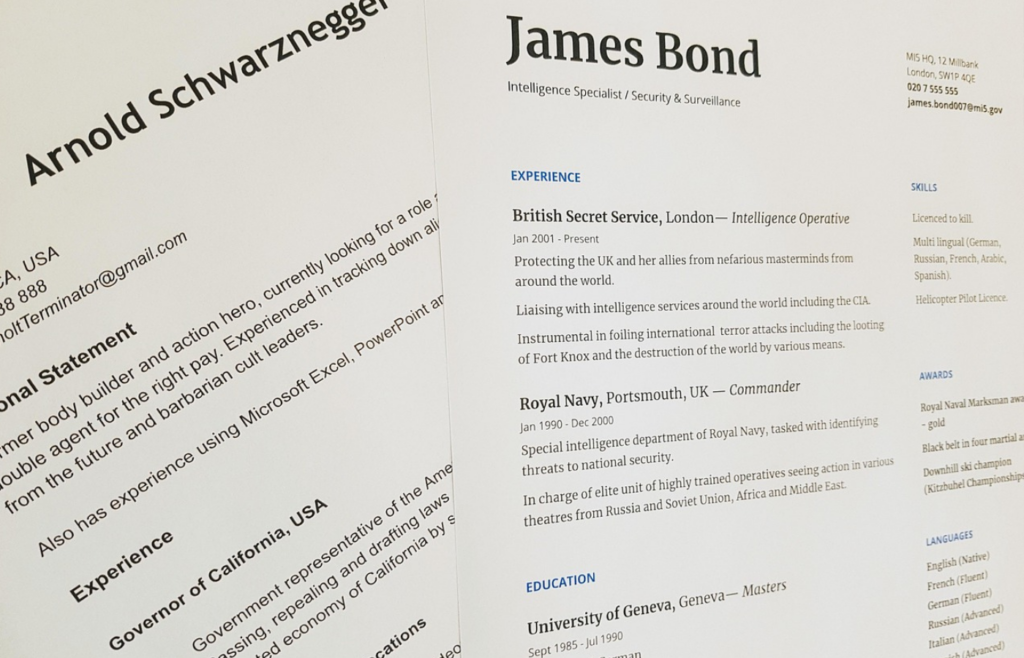Your resume is often your first and only chance to impress a hiring manager. With dozens (or even hundreds) of applications for each job, you need to stand out fast. A well-crafted resume doesn’t just list your experience — it tells a story about why you’re the best candidate for the job.
Use these ten resume tricks to catch an employer’s eye and boost your chances of getting hired.
1. Use a Strong, Tailored Headline

Your resume should start with a powerful headline that clearly states your expertise. Instead of a vague title like “Marketing Professional,” try “Digital Marketing Strategist | SEO & Content Expert.”
A clear, keyword-rich headline helps recruiters immediately understand what you bring to the table.
2. Include a Compelling Summary Statement

A well-written summary at the top of your resume grabs attention. Keep it short (3–4 sentences) and focus on your most impressive skills and achievements.
Example:
“Results-driven sales manager with 8+ years of experience increasing revenue by 30% annually. Expert in client relationship management, strategic planning, and high-impact negotiations. Passionate about driving business growth through innovative sales strategies.”
3. Optimize for Applicant Tracking Systems (ATS)

Many companies use applicant tracking systems (ATS) to filter resumes before a human even sees them. If your resume lacks the right keywords, it might never reach the hiring manager.
Study the job description and incorporate relevant keywords naturally throughout your resume—especially in the skills and experience sections.
4. Highlight Achievements, Not Just Responsibilities

Hiring managers want to see results, not just job duties. Instead of saying:
- “Managed social media accounts”
Try:
- “Grew social media engagement by 45% in six months through targeted content strategy.”
Quantifying your impact makes your resume more persuasive and memorable.
5. Keep It Concise and Easy to Read

Most recruiters spend less than 10 seconds on an initial resume scan. If your resume is cluttered or too long, it won’t get read.
- Keep your resume to one page (two pages if you have 10+ years of experience).
- Use clear headings, bullet points, and white space to improve readability.
- Stick to professional fonts like Arial, Calibri, or Times New Roman in size 10–12.
6. Customize Your Resume for Each Job Application

A generic resume won’t stand out. Tailor your resume for each job by:
- Adjusting your summary statement to match the role.
- Reordering bullet points to highlight the most relevant experience.
- Using the same language and keywords from the job posting.
7. Add a Skills Section with Industry-Specific Keywords

A dedicated Skills section helps recruiters quickly see if you match the job requirements.
Example for a Marketing Professional:
- SEO & Google Analytics
- Content Marketing
- Email Marketing Automation (Mailchimp, HubSpot)
- Social Media Strategy
8. Use Action Verbs to Show Impact

Weak, passive language makes your experience sound unimpressive. Start each bullet point with a strong action verb like:
- Led
- Developed
- Increased
- Launched
- Implemented
Example:
Instead of “Responsible for customer service training”, say “Developed a customer service training program that reduced response time by 35%.
Read More: 10 Financial ‘Rules’ That Are Outdated in Today’s Economy
9. Include a Link to Your LinkedIn Profile or Portfolio

Hiring managers often check online profiles before making decisions. If your LinkedIn is polished and professional, add the URL to your resume.
If you’re in a creative or technical field, include a portfolio link to showcase your work (e.g., a personal website, GitHub, or Behance profile).
Read More: 10 Jobs That Will Likely Be Obsolete in the Next 20 Years
10. Proofread (Then Proofread Again!)

Even a single typo can cost you the job. Employers see grammar mistakes as a sign of carelessness.
- Run your resume through Grammarly or another spell checker.
- Read it out loud to catch awkward phrasing.
- Ask a friend or mentor to review it.
A great resume doesn’t just list your work history—it sells you as the perfect candidate. By using these ten tricks, you can grab a hiring manager’s attention, pass ATS filters, and increase your chances of landing an interview.
A well-optimized resume could be the difference between getting overlooked and getting hired!
Read More: Top 10 High-Paying Jobs You Can Get Without a Degree






